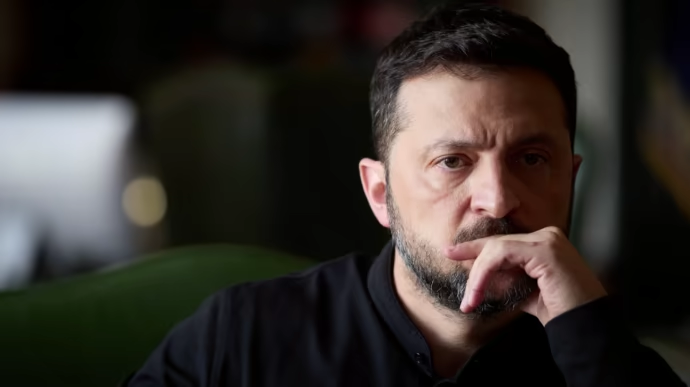Ukraine is experiencing a political crisis driven by a major corruption scandal in the energy sector, unfolding while the country remains engaged in a costly war with Russia.
The affair has destabilised the government in Kyiv, strained parliament and coincides with renewed – but uncertain – diplomatic moves involving the United States and Turkey.
On 18 November, the Verkhovna Rada failed to vote on dismissing Justice Minister Herman Halushchenko and Energy Minister Svitlana Hrynchuk, both of whom have submitted resignations in connection with an investigation into alleged large-scale corruption at the state nuclear company Energoatom. Deputies from the opposition European Solidarity party blocked the parliamentary rostrum, demanding the dismissal of the entire cabinet rather than the departure of individual ministers.
The scandal centres on a reported scheme worth around $100 million involving Energoatom and figures linked to the governing team of President Volodymyr Zelenskyy. The National Anti-Corruption Bureau of Ukraine (NABU) is leading the investigation, which has already prompted the suspension of Mr Halushchenko and the resignation of Ms Hrynchuk. Parliamentary anti-corruption committee chair Anastasia Radina has publicly argued that mere suspension is insufficient and that both ministers should be removed by the Rada.
The confrontation in parliament reflects deeper tensions over how to respond. There is little sign of a stable majority willing to treat the affair as a problem that can be resolved by limited reshuffles. Critics within the political class argue that the crisis has exposed weaknesses in Ukraine’s institutions that have accumulated since the 2019 presidential and parliamentary elections, when Mr Zelenskyy’s team consolidated power. They claim that, over time, decision-making has become increasingly centralised around the presidency and the executive, with parliament’s role diminished.
Russia’s full-scale invasion in February 2022 might have been expected to push Kyiv towards stronger, more functional governance, given the demands of a long war. Instead, Ukrainian commentators say that wartime centralisation has at times narrowed scrutiny and created scope for abuses within key ministries and state-owned enterprises. The Energoatom case is widely regarded in Kyiv as only the first major episode in what could become a longer series of investigations into wartime procurement and management.
International partners are following events closely. The European Union has linked Ukraine’s progress on anti-corruption reforms and rule of law to the pace of its accession process. Donors in the G7 are also sensitive to the political risks of large financial and military packages if Kyiv is seen as failing to act decisively when scandals emerge.
The domestic turmoil coincides with a diplomatic initiative that has raised expectations abroad but caution at home. President Zelenskyy is preparing to travel to Turkey, where he is due to meet Steve Witkoff, the special envoy of US President Donald Trump, for talks framed as an attempt to “reinvigorate” efforts to end the war. Russia will not participate in these contacts.
Mr Witkoff has been active for months in seeking venues and formats for potential negotiations, portraying himself as a channel to a future Putin–Zelenskyy meeting. Ukrainian analysts, however, question both the envoy’s reading of the conflict and the Kremlin’s intentions. They argue that previous episodes of dialogue were used by Moscow primarily to gain time, delay Western sanctions or influence decisions on arms deliveries, rather than to move towards a compromise settlement.
Security specialists in Kyiv and Western capitals broadly assess that the strategic goal of Russia’s leadership remains the dismantling of Ukrainian statehood and the incorporation or control of large parts of its territory, rather than coexistence with an independent, sovereign neighbour. They contend that any significant concessions from Kyiv under current conditions would be treated in Moscow as an opportunity to deepen political instability, undermine trust in the state and weaken Ukraine’s armed forces ahead of further offensive operations.
Against this backdrop, some Ukrainian commentators fear that Mr Witkoff may arrive in Turkey expecting a weakened Ukrainian president to accept far-reaching compromises in exchange for political backing from Washington. They argue that such pressure, if applied at a moment of internal crisis, would risk being exploited by the Kremlin while failing to deliver a credible settlement.
In Kyiv, the debate over the way forward has increasingly focused on the resilience of domestic institutions. Proposals from across the political spectrum converge around three main strands.
First, personnel decisions: advocates call for a systematic review of senior appointments and the removal, through legal procedures, of officials who are credibly suspected of corrupt activity. They argue that visible accountability is necessary both for public confidence and for relations with donors.
Second, institutional repair: there are growing calls to restore the Verkhovna Rada to a more assertive role as the central body in a parliamentary-presidential system, including regular oversight of the executive and full use of committee scrutiny.
Third, political configuration: several voices, including figures in opposition parties and civil society, have floated the idea of a government of national unity. Such an administration, they suggest, could bring together experienced professionals from different political camps, concentrate on state-building and wartime management, and move away from the polarised “experiment” politics associated with the 2019 landslide.
Supporters of these steps frame them not as a change of course in the war, but as a precondition for sustaining it. In their view, Ukraine’s ability to withstand Russian military and economic pressure depends as much on functioning, trusted institutions as on foreign weapons and financial aid. The current corruption scandal, they argue, is therefore not only a test of individual ministers, but of the state’s capacity to regulate itself under extreme stress.


